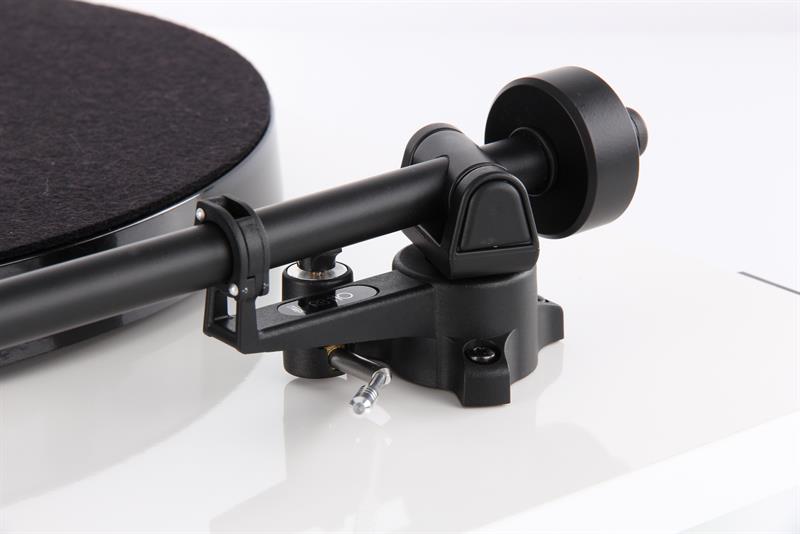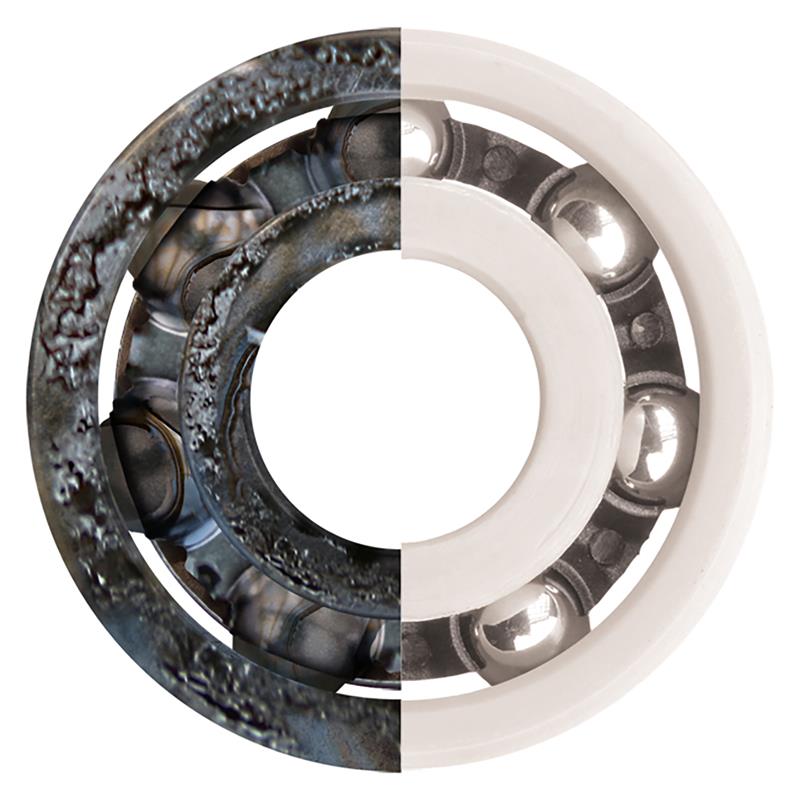Music lovers, particularly Hi-Fi aficionados, will be familiar with Rega. Through all the years when sales of vinyl record sales decreased to nearly terminal levels, Rega continued to design and manufacture turntables from its base in Essex, catering for those with discerning ears who found the tones from analogue sources richer and more authentic than equivalent digital creations. This was limited to a few as the quality from CDs was for most people as good, if not better, than that of vinyl, but the modern way is to download files and that has turned the market on its head.
Compressed downloadable files lose far more of their musical quality and the ears that appreciate the difference can be far less discerning – more of us notice the difference. Vinyl records and therefore turntables have experienced a renaissance – over two million LPs were sold in 2015 in the UK.
It has almost become a problem for Rega as Gandy has always been driven by a desire to make the best products rather than a goal of making lots of products. “We wanted to be 10 people, all enjoying what we’re doing,” he claimed. “It just grew because of demand. We tried not to compete, create a big profit.”
But clearly the pursuit of excellence internally had a positive effect on the products, and the reputation, and the company, grew.
 Taking measure
Taking measure
Turntables, claims Gandy, are essentially scientific instruments. “We think of the whole mechanism as a piece of measuring equipment. You can’t say that one bit is more important than the other. Every single part is important.” And in this finely balanced machine that includes the bearings that allow movement in the arm.
“The bearings need to allow free movement across the record and vertically, because sometimes the record if it is warped will move up and down,” said Gandy. “But if the bearing can move it will, so how can the cartridge measure the movement when you are effectively, trying to measure dynamic movement in microns. Our aim is to reduce the free movement in the bearing to zero, and we have practically achieved that.”
There is a process of constant refinement, one that typically starts with the premium products and filters down through the range. However, selecting and fitting the steel bearings in the arm of the top of the range turntables was a skilled, time-consuming and expensive, so rather than use these in the more affordable turntables, more affordable alternatives were sought. This search included a dialogue with igus about plastic bearings.
“Our main criteria were that the bearings would not use any oil, have long life and shielding from dust,” said Gandy. The bearings experience effectively no loading and no speed but, as Gandy continued: “we needed an accuracy that was 20 or 30 times what they could offer. And that’s where I was wrong, because I said they would never be able to do it - so don’t waste your time.”
Do it, of course, they did. The bearings igus developed were not quite as accurate as the steel bearings used in the top end systems, but the compression that is inherent within the bearings compensates for any inaccuracies.
The development took 18 months with the R&D team at Rega working closely with the igus development team in Cologne. The resulting product is the xiros tribopolymer ball bearing which fulfils the requirements of being self-lubricating, and dry running, and therefore maintenance-free and impervious to contamination.
Despite the compression compensating for the tolerance, igus had a further trick up its sleeve, as Gandy explained: “We already had something that we could just about use, but Jason [Jason Gregory is chief engineer for Xiros Bearings] also engineered a tiny ridge. The ridge is microscopic, but visible, and can compress the bearing as it is put onto the spindle and into the housing. That ridge also tends to relax with time and gives a nice snug fit of the bearing into the housing which has a much larger tolerance. It acts like a washer or a shim. It is designed so it compresses the bearing, but not where the race with the ball bearings are. It’s a bit like fudging, but very clever fudging.”
Because the bearing is softer it has an acceptable friction level – it is not enough to restrict the movement of the arm. Gandy said: “We set the limits of friction as 20mg at the end of the arm and on the lower cost arms we set the limit at 40mg. To put that into context, most arms we examine from other manufacturers at much higher prices are more like 50 – 80mg, and up to 150mg.”
It is therefore not quite friction free but as close as could be engineered, and the resulting arm - featuring a total of four xiros bearings, two on its vertical axis and a further two on its horizontal axis – is perfectly balanced and has no drag.
 The bespoke xiros bearings now produced for Rega are among the lowest friction bearings igus has ever made and compare favourably with the original metal ball bearings in terms of noise, vibration and acoustics, as well as delivering improved precision and lead times. The xiros bearings are currently used in Rega’s top two selling turntables the Planar 1 and 2, and are also now being evaluated for use in other tonearms and turntables in the range, although Gandy commented: “Because the material has higher compressibility there is still more potential movement at very microscopic level and at varying frequencies – so we are in that trade off area.”
The bespoke xiros bearings now produced for Rega are among the lowest friction bearings igus has ever made and compare favourably with the original metal ball bearings in terms of noise, vibration and acoustics, as well as delivering improved precision and lead times. The xiros bearings are currently used in Rega’s top two selling turntables the Planar 1 and 2, and are also now being evaluated for use in other tonearms and turntables in the range, although Gandy commented: “Because the material has higher compressibility there is still more potential movement at very microscopic level and at varying frequencies – so we are in that trade off area.”
Gandy concluded: “Our turntables and tonearms have to be more accurate than the equipment used to press vinyl,” said Roy Gandy. “We think of the turntable not only as a means of playback, but as a precision measuring device that has to track and interpret the groove in each piece of vinyl it reads. The xiros bearings are critical in helping us achieve this ambition and we have enjoyed working hand-in-hand with the talented igus engineers to make this happen.”





